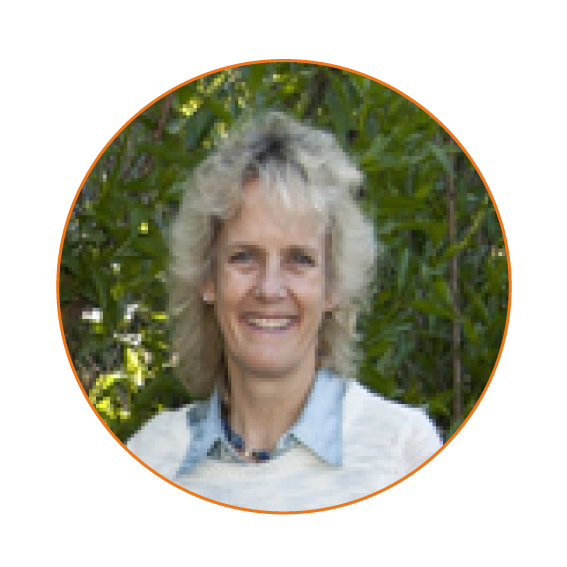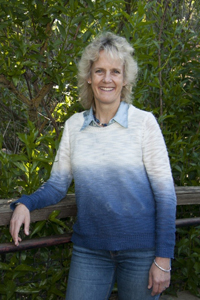Public Lecture: “Fake News”: How misinformation about agriculture threatens sustainability and innovation
Professor Alison Van Eenennaam from the University of California, Davis, will present the 2018 Douglas Ormonde Butler Memorial Lectureship in genetics.
 The phenomenon of fake news is not new to agricultural scientists. Misinformation and fallacies abound, and simplistic narratives regarding the “best” way to produce food dominate the internet and media. Misrepresentations are often promulgated and amplified by individuals or celebrities with little actual expertise in the field, or by groups with competing business interests. Perhaps nowhere is this more clearly illustrated than with regards to the topic of the genetic improvement of food crops and animal species. The fractious GMO debate plainly demonstrates the dramatic disconnect that can exist between popular opinion, and peer-reviewed evidence. It is clear our pet dogs are not aggressive wolves due to human intervention in breed development, and while some may romanticize “natural” heirloom breeds and varieties, food species have been intentionally modified from their ancestral forms to be more productive and resilient to disease. Breeders have been acting as glorified matchmakers for centuries, artificially pairing the best males and females based on a predictive matrix that calculates the expected superiority of their offspring. Unbeknownst to many, they have been continuously employing new breeding methods and reproductive technologies such as radiation mutagenesis, genomic selection and artificial insemination in breeding programs to accelerate the rate of genetic improvement of our food species. While most are unaware of these developments and may have an instinctive negative gut reaction when made aware of them, these technologies have a direct and tangible impact on issues consumers do care about, i.e. access to safe, nutritious food produced with a reduced environmental footprint. The public benefits that accrue from investment and technology adoption in crop and food animal breeding programs are substantive, and conversely the public has much to lose from underappreciating the adverse environmental impact of forestalled innovation in this field. It is hard to overemphasize the important role that genetic improvement plays on sustainability outcomes, and it is imperative that agricultural scientists and breeders inform and become visible participants in public conversations about the importance of innovation in agricultural breeding programs.
The phenomenon of fake news is not new to agricultural scientists. Misinformation and fallacies abound, and simplistic narratives regarding the “best” way to produce food dominate the internet and media. Misrepresentations are often promulgated and amplified by individuals or celebrities with little actual expertise in the field, or by groups with competing business interests. Perhaps nowhere is this more clearly illustrated than with regards to the topic of the genetic improvement of food crops and animal species. The fractious GMO debate plainly demonstrates the dramatic disconnect that can exist between popular opinion, and peer-reviewed evidence. It is clear our pet dogs are not aggressive wolves due to human intervention in breed development, and while some may romanticize “natural” heirloom breeds and varieties, food species have been intentionally modified from their ancestral forms to be more productive and resilient to disease. Breeders have been acting as glorified matchmakers for centuries, artificially pairing the best males and females based on a predictive matrix that calculates the expected superiority of their offspring. Unbeknownst to many, they have been continuously employing new breeding methods and reproductive technologies such as radiation mutagenesis, genomic selection and artificial insemination in breeding programs to accelerate the rate of genetic improvement of our food species. While most are unaware of these developments and may have an instinctive negative gut reaction when made aware of them, these technologies have a direct and tangible impact on issues consumers do care about, i.e. access to safe, nutritious food produced with a reduced environmental footprint. The public benefits that accrue from investment and technology adoption in crop and food animal breeding programs are substantive, and conversely the public has much to lose from underappreciating the adverse environmental impact of forestalled innovation in this field. It is hard to overemphasize the important role that genetic improvement plays on sustainability outcomes, and it is imperative that agricultural scientists and breeders inform and become visible participants in public conversations about the importance of innovation in agricultural breeding programs.
About Series of events as part of the Douglas Ormonde Butler Memorial Lectureship
The Douglas Ormonde Butler Memorial Public Lecture and Technical Seminar are delivered by a person of outstanding merit and international reputation in the field of genetics. This year we are also delighted to screen the movie Food Evolution, followed by an audience discussion.
This year's Douglas Ormonde Butler Memorial Lecturer is Professor Alison Van Eenennaam from the University of California, Davis.
 About Professor Alison Van Eenennaam
About Professor Alison Van Eenennaam
Alison L. Van Eenennaam is a Cooperative Extension Specialist in the Department of Animal Science at the University of California, Davis and runs the Animal Genomics and Biotechnology Laboratory. She has served on committees such as the USDA National Advisory Committee on Biotechnology in the 21st Century and was awarded the 2014 Borlaug CAST Communication Award. Van Eenennaam writes the Biobeef Blog.
